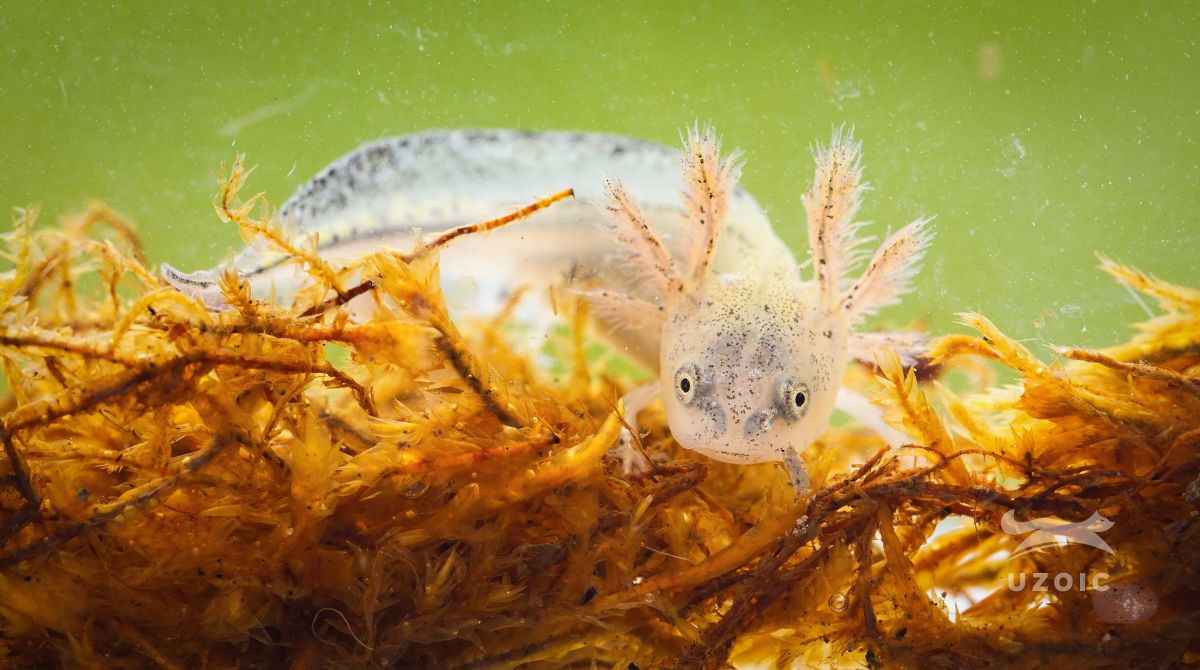If you have an Axolotl as a pet, you may have noticed that their gills are turning white. It can be a cause for concern, but in most cases, it is nothing to worry about.
We will discuss the causes of Axolotls Gills Turning White and what you can do to prevent it. We will also cover some common symptoms so that you can get your pet the help they need as soon as possible.
Table of Contents
Why Are My Axolotls Gills Turning White?
Axolotls Gills turn white and firm when it is sick, stressed or when the environment is not ideal.
Symptoms
Common symptoms include difficulty breathing, lethargy and loss of appetite.
Difficulty breathing
Lethargy
You may notice them laying flat against rocks rather than standing tall like normal fish do because this type requires greater airflow through its body
Loss of appetite
Causes
One of the most common reasons for Axolotl’s gills turning white is a lack of oxygen in their environment.
Lack of Oxygen
When gills turn white, it is usually a sign that they are not getting enough oxygen.
If your Axolotl is kept in an aquarium that does not have enough oxygen, they may experience problems with their gills.
Poor gill condition is a sign of stress or infection. In some cases when their color starts to pale, they display overgrown scales.
You can easily remedy this by ensuring plenty of oxygen in their environment.
Ammonia
Another common reason for Axolotls gills changing color to white is the build-up of ammonia in their environment.
Ammonia can be toxic to Axolotls, so keeping their environment free of this substance is essential.
Water too cold
If the water in their tank is too cold, Axolotls will not be able to get enough oxygen from their gills, and they will start to turn white.
The ideal water temperature for Axolotls is between 68 and 72 degrees Fahrenheit.
Dirty tank
If the water in their tank is too dirty, Axolotls will not be able to get enough oxygen from their gills, and they will start to turn white.
Therefore, keeping the water in their tank clean and changing it regularly is important.
Sickness
If the Axolotl is sick, they may not be able to get enough oxygen from their gills, and they will start to turn white.
Axolotl’s gills will turn white if a fungus infects them.
If you manage to catch the infection early, the fungus is easily treatable; however, you may require the proper attention to treat your pet carefully.
The Axolotl gills are particularly sensitive and you must do any medications used to treat the fungal infection with great care.
You should also be careful about Axolotl Gill Flukes. Gill Flukes are parasites that live in the gills of Axolotls and can cause a lot of damage.
If you think your Axolotl has Gill Flukes, the best thing to do is to take them to the vet as soon as possible.
Summary
- Lack of Oxygen
- Ammonia
- Water too cold or hot
- Dirty tank
- Sickness [Fungal Infection/Gill Flukes]
What color should Axolotl gills be?
As per National Geographic, the Axolotl’s gills should be a pink or red color if they are happy and healthy.
The Axolotl’s gills can change color depending on their mood or stress levels.
If they are stressed, their gills may turn white.
Why is my Axolotl losing color?
If your Axolotl is losing color, it could signify that they are not getting enough food.
Axolotls are carnivores, and they need to eat live food, such as worms or insects.
Therefore, if you are not feeding them enough live food, they may start to lose color.
How can I prevent this from happening?
Easiest way to prevent your Axolotl’s Gills from Turning White is to keep their tank clean and change the water regularly.
You should also ensure that the water temperature is between 68 and 72 degrees Fahrenheit.
Also, periodically check for infection and sickness in your Axolotl.
Final Thoughts
In most cases, Axolotls Gills Turning White is nothing to worry about.
However, if you think your Axolotl’s gills are turning white due to serious sickness, it is essential to seek professional help as soon as possible.
A veterinarian will be able to diagnose the problem and provide you with the best course of treatment.
Axolotls are a delicate species, and they need to be cared for properly to stay healthy and happy.


